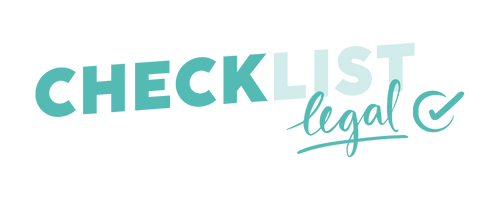How to protect your business
When you first start up a company, it is exciting just to get started and make that first sale!
You might make something or set up a service for a friend and just start selling it straightaway under your own name. Eventually, you might start thinking about getting a business name, a formal business number, and other kinds of company structures.
Why are business structures important?
Without the right structures in place, you could find yourself with lots of issues.
If you just work in your own name under an ABN as a sole trader…
You could see a large income tax bill as the business’ income is counted as your personal income and taxed on top of any other income you might make from other jobs.
You are the bottom line for all risks and responsibilities… This means if a client is injured from your services or at your place of business, they might go after you personally.
If you have employees as a sole trader, you are also responsible for all employee issues that could crop up.
Other reasons to think about your business structure
Apart from the potential tax benefits and opportunity to reduce your personal risks, there are some other important reasons to think about your business structure (speak to your financial advisor for more information about tax benefits).
The right business structure makes your business seem more professional. Not that Pty Ltd companies are always more organised or profitable than sole traders, but that does tend to be the perception. So it can be a great way to look bigger than you are and give a sense of comfort to your clients and suppliers.
The key list for professional business structures to reduce risks and increase professionalism
Formalised business structure – some form of ‘Pty Ltd’ company
Registered business name
Registered trademark
Registered for GST
Building an asset – Selling an asset
In addition to these aspects, if you are thinking about building a business into an asset that you might want to get investors interested in or perhaps sell, then it is really important to make it clear about who owns what.
You might not think your start-up or small company ‘owns’ any important assets right now, but if your business grows, things that seem trivial could become extremely valuable.
Check to make sure…
Who owns the business name?
Who is the registrant of the website domain name?
Who has access to and ownership of important designs, systems, software code, etc… the ‘secret sauce’ of your business?
Have you trademarked your business name and if so, who owns it?
How many slices of the pie?
What to know about Co-founders Agreements, Shareholders Agreements and Company Constitutions
If it is just you calling the shots, it can be easy to make decisions but stressful to have all the responsibility. With partners or co-founders, you can spread the load around, but it can mean diluting ownership and potential clashes about company decisions.
Whichever way you slice the pie of company ownership, it’s important to understand who is doing what and who is responsible for each different aspect of the business.
If it's all on you, and you own the business and are the only shareholder, the pie doesn’t get sliced. If the company is co-owned or founded between yourself and other members, what are the different responsibilities and contributions that each of you will make to the business? How will you resolve issues when they arise?
We can help you create your co-founder agreement!
Book a free no obligation chat with one of our lawyers via the link below
What about Health and Hygiene?
Health and safety have always been an important issue for businesses. You need to keep yourself and your team members safe when working, and you also need to make sure your clients and customers are safe when they are visiting your studio, salon, or business.
You also have responsibilities to make sure that products you sell people are safe and that you deliver services in a safe way.
In the digital world, you still have health and safety obligations to your employees and clients.
With COVID-19, it’s extremely important from a health and safety perspective, as well as a reputation perspective, that you are following best industry practice and rules for your business type.
Guidelines change regularly, so check the relevant Workplace health and safety information for your country and industry.
In Australia, key sources of reliable information include:
Checklist Legal can help develop a personalised health and safety plan for your business.
We’ve partnered with an Occupational Health and Safety Expert and Chemical Engineer to develop different Health and Safety Plans tailored for health and wellness businesses and fitness professionals.
This means you can train your team members on what's expected from them and be confident you can respond quickly if issues rise. Contact us for a free online consultation.
When you are busy building your business, serving your clients, and perfecting your products, the nitty gritty details of business structures could be the last thing on your mind. Or… perhaps it is on your mind, but you don’t know where to start because it seems confusing.
That’s where we can help!
Checklist Legal can help create all your business agreements from co-founder agreements, your business’s service terms, privacy policies and more. We specialise in creating contracts that clients love - Contracts that are designed to be easy to read and understand.
Book a free no obligation chat with one of our lawyers via the link below.

